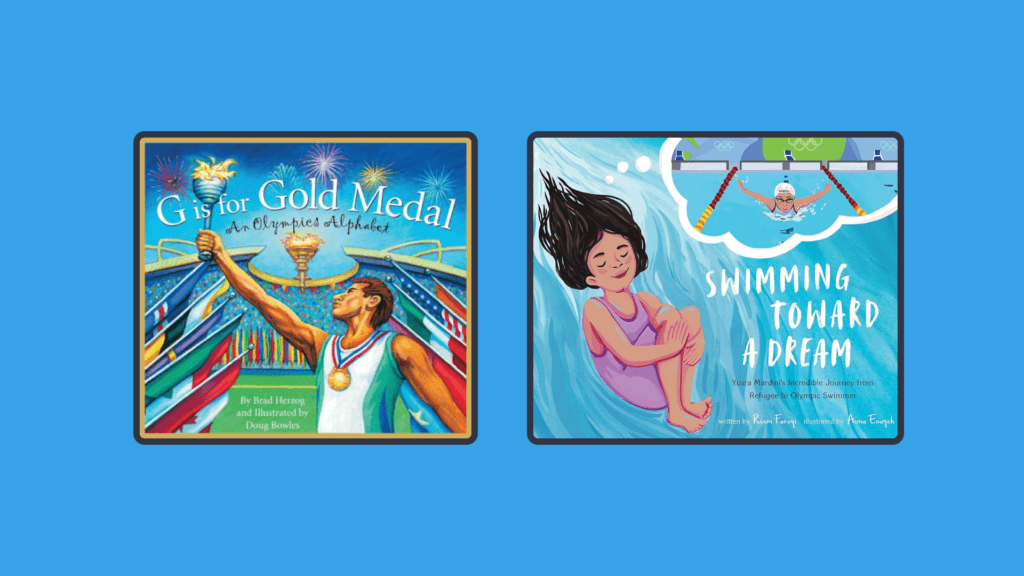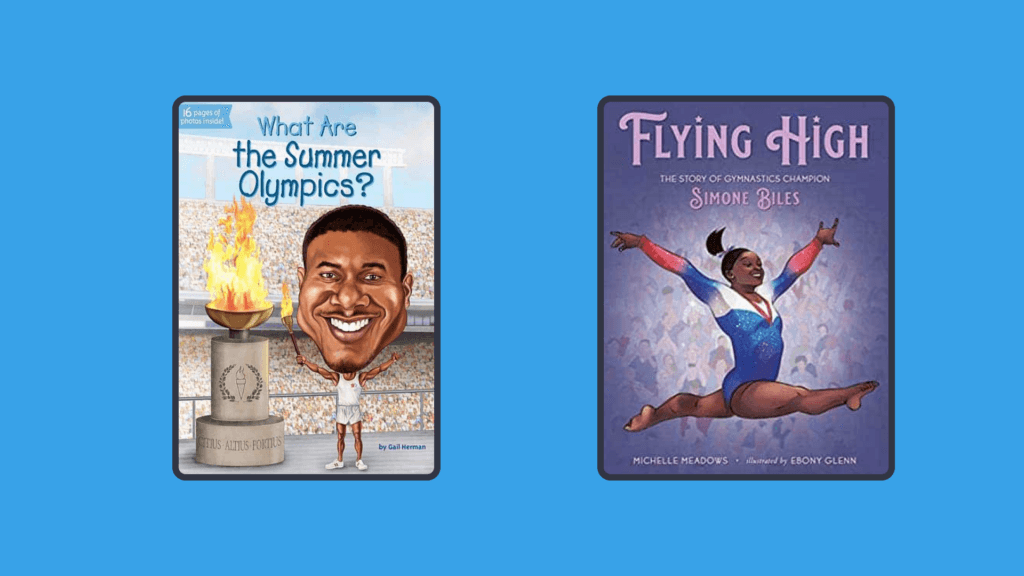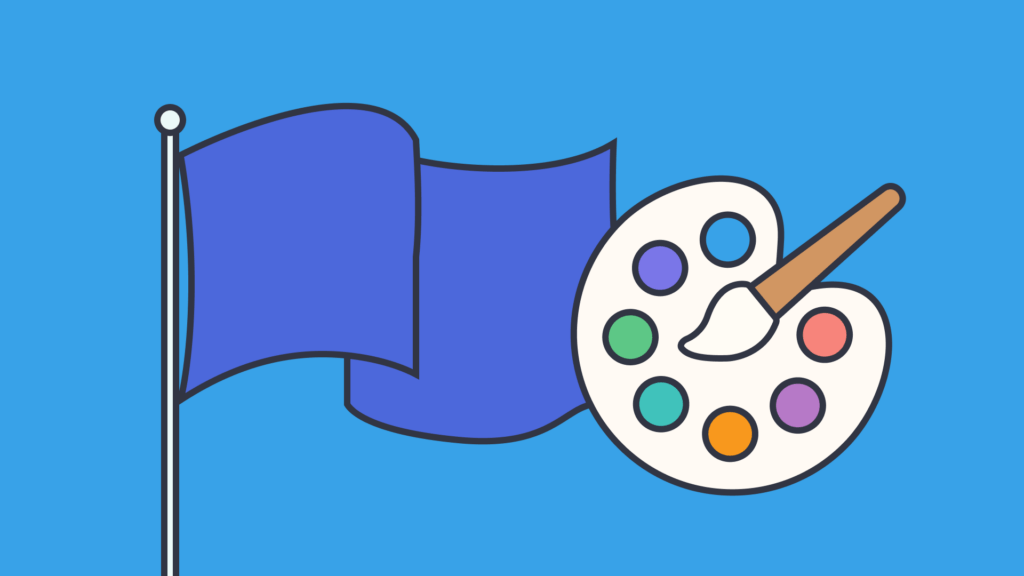18 Ideas for teaching about the Olympics
In this guide
- Ideas to use the Olympics to teach Math
- Ideas to use the Olympics to teach Language Arts
- Ideas to use the Olympics to teach Social Studies
- Ideas to use the Olympics to teach Science
- Ideas to use the Olympics to teach Art
- Ideas to use the Olympics to teach Physical Education
- Ideas to use the Olympics to teach Music
- Ideas to use the Olympics to teach Social Emotional Learning (SEL)
Every few years people of all ages gather to watch the best athletes in the world compete for world titles. The 2024 Summer Olympics in Paris begin in July 2024, and are the perfect way to ignite students’ excitement about learning!
Not only are the Olympics exciting and engaging, the games bring a perfect way for teachers to incorporate cross-curricular or interdisciplinary learning into the classroom. We know that “cross-curricular learning gives students the ability to problem solve and connect ideas with what they are learning to real-world value” (stemsports.com). Interdisciplinary learning also provides an avenue for social emotional learning teaching valuable life skills, growth mindset, intersectionality, and life skills.
Collaborate with other teachers across subject areas and grade levels. As students build upon their knowledge of the Olympic games, they will be able to make stronger connections to each activity. Make learning fun by using the Olympic Games as cross-curricular learning in the classroom!
The following 18 ideas can be implemented before, during, and after the Olympic Games. Many activities can be differentiated to meet the needs of your students and grade level.
Don’t forget to check out ClickView’s curated Olympics topic, including videos and resources for bringing the Olympics to your classroom:
Ideas to use the Olympics to teach Math
1) Charts and graphs
Track and calculate medal counts for each of the competing countries. Each student or group of students can be responsible to track a different country or sport or this activity can be done as a class.
With younger students, charts can have visual representations to track which athlete or country is in the lead. Discuss creating charts and graphs together as a class. Determine how students will keep track of the medals received and how they will be able to know which country is in the lead. As students experience tracking medals together, they may be ready to track medals individually per country or sport.
This teacher took a medal counting graph to the next level with a classroom created bulletin board tracking the number of gold, silver, and bronze medals each country had won.

2) Fractions
Tracking athletes timing, country scores, or other Olympic data is the perfect way to put fraction, decimal, and percentage knowledge to practice! Tracking medals and turning them into percentages helps students connect their mathematical understanding and practice to the excitement of the Olympic games. For example, France received 3/6 gold medals for gymnastics. France received 50% gold medals.
Ideas to use the Olympics to teach Language Arts
3) Text analysis
Olympic athletes are incredibly talented and gifted individuals that make their countries proud! My students love learning about these athletes and their great contributions to their sport and the world. Use these texts to learn about different Olympic athletes. These texts can easily be analyzed to connect with reading strategies you are already teaching in the classroom.

After reading, students can practice summarizing, inferring, or comparing several texts in order to speak and write about the topics. To extend this activity, have students create a presentation or infographic to teach other students or classrooms about the Olympic games.

This video shares Little Girl Big Dream: The Story of Olympian Samantha Peszek. After students watch and listen to this video, try creating a biographical web with facts and information they’ve learned about the Olympian in the story. This activity can be done digitally or on paper with a partner or individually.
What lessons can students learn from these Olympians’ lives? Did your students see any through lines or connections between the Olympians they learned about?
4) Informational essay
After reading, the Olympics are a great way to incorporate informational writing and research. Students can continue researching a famous Olympic athlete, a country or team that interests them, or a specific sport that they want to learn more about.
These informational essays can be adapted to meet the needs of your students. With younger students, consider using an outline or sentence frame for students to research and insert information about their topic. In Kindergarten through 2nd grade, informational essays may be accompanied by pictures and sentence frames such as the ones below.
For example:
Did you know that __________________?
Today I am going to teach you all about Olympic athlete __________________.
One fact about __________ is _________________________.

Ideas to use the Olympics to teach Social Studies
5) Geography
In Social Studies, students can explore the Olympic representation from around the world. Use a digital or paper map to identify or mark the countries that are represented in the Olympics. To extend, take some time to research each country. Students can also research and discover the meaning behind each country’s flag.
For example, check out this video that explains the history of the United States flag!
6) History
Students can spend time researching and learning about the history of the Olympic games. Creating a Venn Diagram to track the differences between the ancient Olympic games versus what the games look like today! Students will be able to spot the similarities and differences between today’s games and the ancient games they study. After researching, students can write or speak on the topic and share their understanding with the class.
Watch this video to give your students a background understanding of the Olympic Games.
This topic on Debating and Public Speaking can be used to gather additional ideas on speaking tasks that can be developed with Olympic themes.
Ideas to use the Olympics to teach Science
7) Physics
Using their science skills, students can engage in a physics study of different sports represented in the Olympics. Older students might enjoy studying the trajectory of a ball that is thrown or a swimmer diving into the water. In addition, students can study the forces and mechanics needed for gymnastics to swing on a bar and land on their feet.
For example, students can learn more about the laws of gravity, speed, and balance required in snowboarding.
8) Nutrition
Olympic athletes also need to stay healthy and fit in order to compete well in the Olympic games. Students can study healthy habits and nutrition intakes that athletes follow in order to optimize their performance. Younger students might begin by talking about protein and how our body uses protein for muscle and energy.

Ideas to use the Olympics to teach Art
9) Symbolism
Students can research and learn about the Olympic rings and the symbolism behind the rings and colors. After researching, students can come up with new updated designs for the Olympics using the information and symbolism the rings represent.
10) Flag design
After learning about a specific country that is competing in the Olympics, students can analyze the design and color scheme of the country’s flag. Students may also enjoy creating their own flag to represent a real or imaginary country. How might students change the flag of their country?
11) Portraits
To extend the learning of Olympic athletes, students can choose and research an athlete of their choice. Then, create an artistic representation of a portrait of that athlete. Include their most famous statistics and post the portraits around the rooms so students are able to learn more about athlete represented.
Ideas to use the Olympics to teach Physical Education
12) Sportsmanship
Discuss the definition and importance of sportsmanship in the P.E. classroom and in the Olympic games. What are ways that Olympic athletes show teamwork, fair play, and sportsmanship?
13) Olympic relay
Practice some Olympic games with students and classes in your school. Students can run relay races or participate in group events and games to earn points for a team. For added fun, students can be given awards or medals for first, second, and third place just like the real Olympic games. Collaborate with other teachers in the school to create classroom teams or each classroom can represent a country.
14) Technique
Learn about the rules and techniques of a specific Olympic sport. Discuss the gear and equipment needed to be successful in this sport. Practice one element of the sport together as a class and split students up into groups to continue practicing. For example, teach students the skills needed to dribble a basketball. Show a demonstration video or show students the technique with a live demonstration. Then, have students practice this technique. End with a game or match between classmates.
Ideas to use the Olympics to teach Music
15) Opening ceremonies
Explore how music, dance, and performance are incorporated into the Opening Ceremonies of the Olympics. Students can research a specific year’s performance or explore the performances throughout the years of the Olympics.
16) National anthem
In small groups, students can explore different country’s national anthems. Ask students what they notice about the country’s anthem and how it compares to their home country’s national anthem.
After listening to several examples, students can create their own national anthems for their home country or an imaginary country. These national anthems can be to the tune or music to the anthem they researched, or a completely new composition! Let students creatively represent their country through song. If time, allow students an opportunity to perform their national anthems in front of the class.
Ideas to use the Olympics to teach Social Emotional Learning (SEL)
17) Growth mindset
Watch the story of Jesse Owens, who overcame discrimination and injustice and was one of the best track and field athletes of all time. Reflect on ways Jesse Owens showed a growth mindset in his life. If your students need more understanding of what a growth mindset is or how to recognize it, watch this video to help define a growth mindset.
18) Resilience
After watching Jesse Owens, lead a discussion with students surrounding the word resilience. First, begin by leading students through a discussion of the word. Then, watch this video that defines and gives examples of resilience. Together as a class, create a list of ways students can show resilience in the classroom. Add to the list and include ways Jesse Owens and other Olympic athletes show resilience in their lives everyday.
Although the Olympics only happen every few years, the spirit and teamwork of the Olympic Games can be discussed at any time throughout the school year! Themes like resilience or growth mindset, rich history and important figures, and graphing and physics always have a place in the classroom! Use these activities as you celebrate Olympic Day on June 23!
References
- Stem Sports. (2022). The Benefits of Cross-Curricular Instruction. [Online] Available at: https://stemsports.com/the-benefits-of-cross-curricular-instruction/

Victoria Dotson
briefcase iconLiteracy Specialist
Victoria Dotson, an esteemed educator and professor in Chicago, Illinois, leverages her background as a Literacy Specialist to support multilingual learners and mentor preservice teachers. Victoria excels in developing literacy practices, promoting diverse literacy experiences in the classroom, and developing restorative curriculum.
Other posts
Want more content like this?
Subscribe for blog updates, monthly video releases, trending topics, and exclusive content delivered straight to your inbox.


















